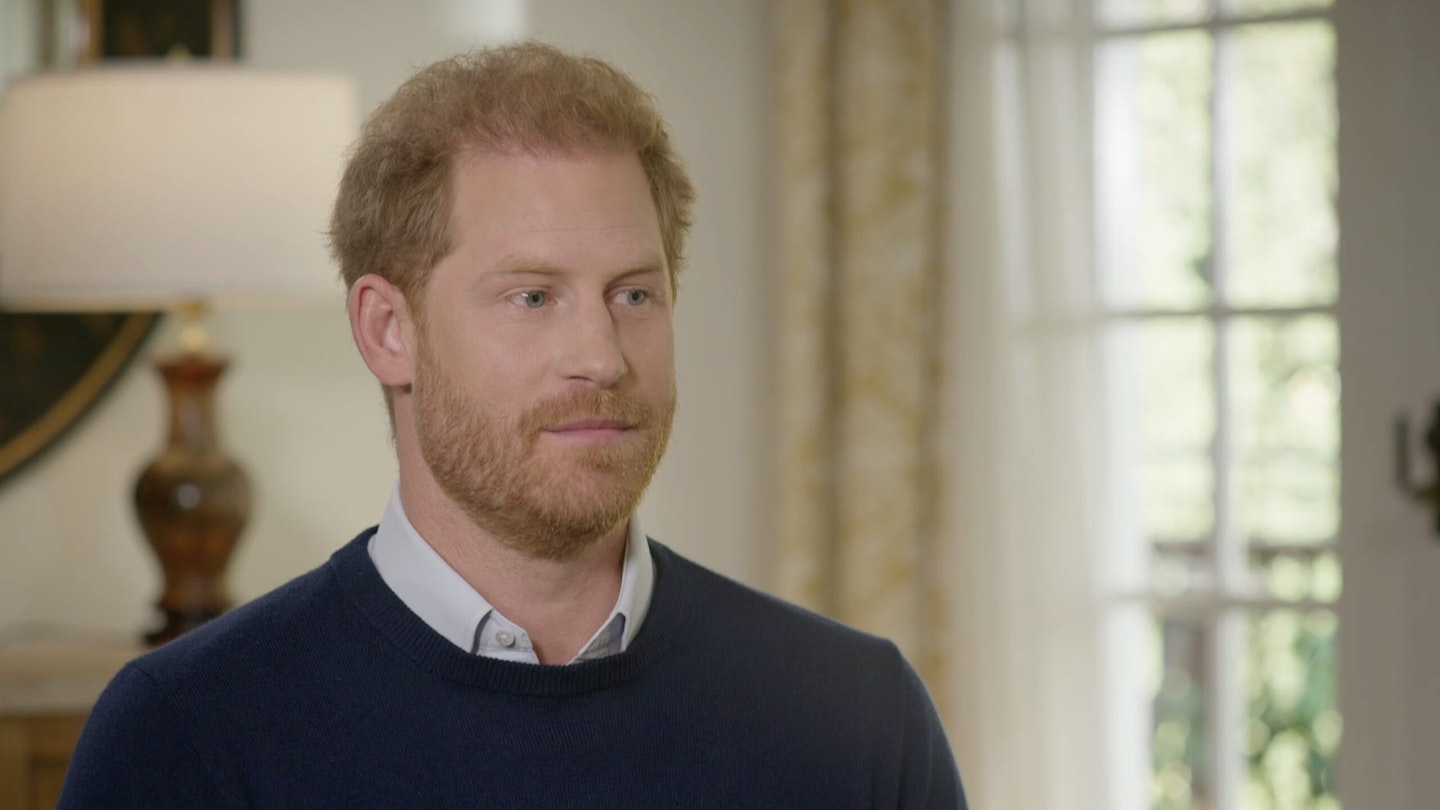Ahead of the publication of Prince Harry's memoir Spare, his ITV interview on Sunday had the world gripped to their screens. The masses were eager to see what else of Prince Harry’s story was left to be laid bare after candid admissions of Taliban killings, the Queen Consort’s alleged villainhood, and the treatment of him and Meghan Markle by the Royal Family and British media.
Among all of the revelations, one phrase emerged significant: unconscious bias. Why? Because Prince Harry alleged that his family’s ‘concern over how dark his son Archie’s skin colour would be (which were alleged during Meghan Markle’s 2021 interview with Oprah) was not in fact racist. According to Harry, it was an example of ‘unconscious bias’. More than that, Harry claimed that unconscious bias and racism are separate entities, and that the accusations of racism against the Royal Family have never actually been led by Harry or Meghan but are in fact interpretations by the British media. Interesting.
Subsequently, the term 'unconscious bias' was searched thousands of times in the UK, amassing peak popularity in google search minutes after Prince Harry's Interview, including the question ‘What is unconscious bias?’
I find it appropriate to inform you the reader, that the only difference between racism and unconscious bias, is the terminology used to describe them (racism). Bias is , ‘aprejudice in favour of or against one thing, person, or group compared with another, usually in a way that’s considered to be unfair.’ Biases may be held by an individual, group, or institution.
What is unconscious bias?
‘Unconscious bias’ (as defined by Dushaw Hockett), is the automatic response to mental associations which one has towards people, which shape our behaviours every day, in ways which we may not see but ultimately harm others.
In shorter words, unconscious bias is, in fact,racism. Why? Because the personal biases which one has (we all have biases), can manifest in the actions of an individual and institution, against another person or group of people. Our biases are informed by our background, personal experiences, and cultural context. So, to use biased discriminatory recruitment practices in the U.K as an example, although the Equality Act is legislative action against protected characteristic discrimination, unconscious bias, or racism impacts the outcomes for Black and non-white people.
Within the context of Prince Harry’s interview, the racist abuse experienced by both Meghan Markle and Ngozi Fulani, is an example of the institutional contempt for Blackness (a consequence of colonialism), withthe ‘Angry Black Woman’ stereotype used by the monarchy’s defenders to discredit both women at times.
Prince Harry’s comment about ‘unconscious bias’ is the perfect example of British attitudes towards racism. Unconscious bias is actually conscious, when I as a Black Woman must continually gauge the tonality of social interactions, how the world will perceive and receive my Black Womanhood in a country which leans on the crutches of imperialism.
I found Prince Harry’s comments disappointing, and harmful to myself and other Black, Brown, and non-white people, who have lived experience of racism. In my opinion, the separation of racism from the legacy of the monarchy is as dangerous. His admitted support of the monarchy is contrary to the calls for accountability he has sought after in his memoir and interviews. How can one support an institution responsible for the colonization and systemic subordination of Africa, The Commonwealth, Asia, and Indigenous America?
‘Having lived within that family’, Prince Harry says when citing his lived experience as his justification for the alleged racist comments made towards his son, Archie. Prince Harry’s proximity to privilege, as the son of King Charles, the brother to the future heir of the throne Prince William, and beneficiary of the protections afforded by the monarchy, clearly affects his understanding of racism.
Intention does not negate the impact of racism.
Chris Kaba's death at the hands of the Metropolitan Police, is a fatal consequence of the unconscious bias held by the force, which materialise through disproportionate stop and searches, strip searches, and deaths in police custody for the Black community. Yet, it would be deeply insensitive, and false to classify his death as an example 'unconscious bias'. His death was racially motivated, and four months after his death, calls for justice still ring loud.
As Prince Harry States in his interview, ‘silence only allows the abuser to abuse’, and aptly so. However, legitimising an abusers’ actions perpetuated through racism (by using unconscious bias as separate term, rather than reality faced by Black, Brown, Asian and Indigenous People), you only allow racism to continue. It provides new ways for people to avoid accountability for their racist actions. For folks reading this, I find it necessary to say that intention (looking at Lady Susan Hussey here), does not negate the impact of racism.
Prince Harry has candidly shared in 2020 at the height of the Black Lives Matter protests, in response to George Floyd’s murder by Police officer Derek Chauvin that he did not understand what unconscious bias was until meeting Meghan Markle. Judging by his comments last night, he still has a lot to unpack and learn. For unconscious bias manifested as racism is a conscious act of prejudice, discrimination, and injustice. But with or without Prince Harry's knowledge of unconscious bias and racism, the monarchy will have to respond – not just to Harry, but to the ongoing calls for reparations and accountability for the harms caused by colonialism.
Chantal Senya is a writer, activist, and host of the 'To Be Confirmed' podcast – a series dedicated to dissecting society's questions about the relationship between race and racism with identity, gender, and more. You can follow her on Twitter @chxnnyc or listen to her podcast on Spotify or Apple.
